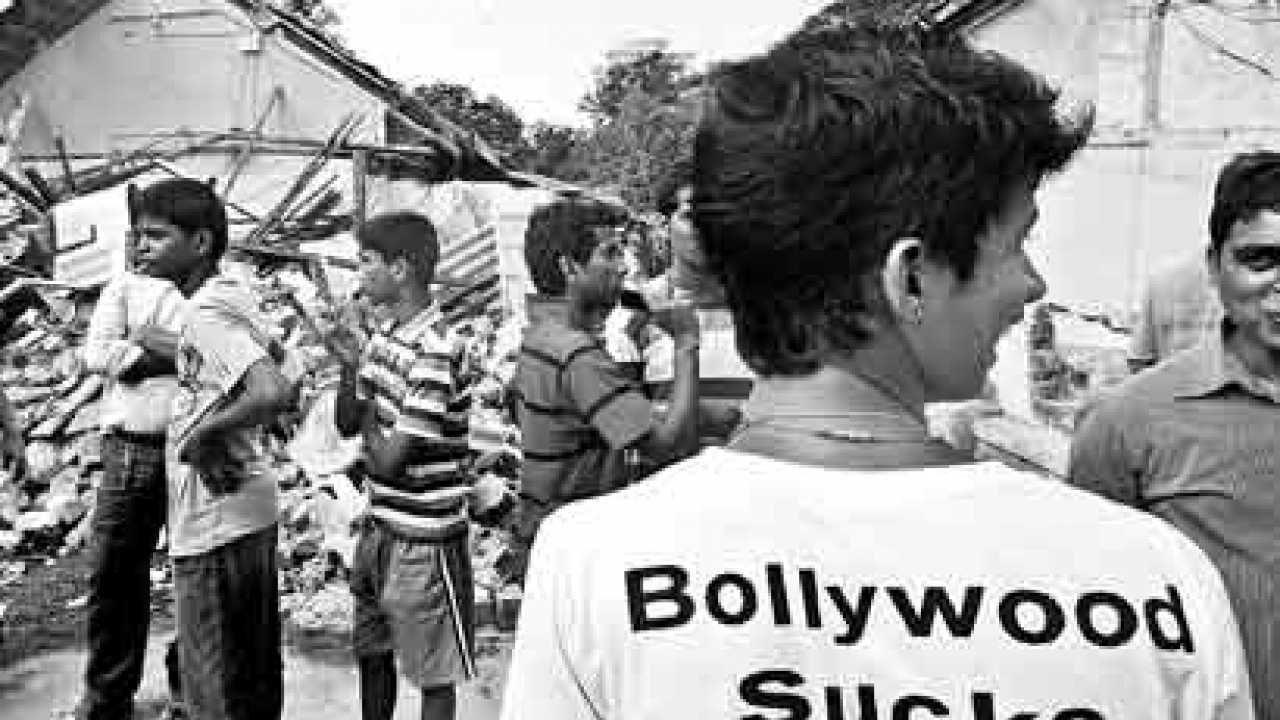
Residents from four of Mumbai’s slums saw the film Shanghai and felt it had little resonance with the realities they face. In fact, they said it created a false impression of the issues of development, corruption and state violence, writes Javed Iqbal, who saw the film with them.
I had gone to watch Shanghai in Chembur with the residents of Bheem Chhayya, Chedda Nagar, Annabhau Sathe Nagar, and Sion Koliwada. They are the people who stand before bulldozers, who organise protests, who have been beaten by the police; to whom state repression and structural violence is an almost everyday reality. For them, the word Shanghai means oppression and the memory of the 80,000 homes in Mumbai that disappeared in a single day.
After the film, when I asked if the film dealt with the issues of the working classes and the protestors who face the brunt of state violence, of development and bulldozers, the answer was a unanimous “No”.
It wasn’t just that they felt there was absolutely none of the tension that is characteristic to a state-people conflict in development projects — protests, evictions, police firings, the day to day violence of state functionaries, especially the police. They found the character of Dr Ahmedi as uninspiring as a doorknob, and pointed out that the film showed no working class organisers, or andolan saathis, who are predominately responsible for strengthening a people’s movement and who are the first to be brutally attacked and/or killed. There was also no mention of how the mainstream media is co-opted into the fantasy of Shanghai and the daily trials and vulnerabilities of the working class and casual labourer was absolutely ignored (except in one character). It seems the makers of Shanghai are guilty of having done exactly what the state would want to do to resistance and people’s movements in the slums — they bulldozed them out of the film.
Development projects have a very political purpose: to not only hand over prime real estate to private parties, but also to remove every possible hint of dissent and political activity, which is always incipient in slums and working class neighbourhoods. The film, by portraying only the hypocrisies and futilities of middle and upper class characters whose so-called good intentions and attempts for justice are constantly thwarted by ‘the system’, betrayed a lack of appreciation for the one place where inspiration is found — in the people’s movement, in the protests, like when the hungry go on hunger strike.
Thus, all those who have stood before bulldozers said they would not send anyone to go watch the film. This was the sentiment expressed by everyone, from Annabhau Sathe Nagar to Sion Koliwada.
“They showed in the film that the public is not agitating, that there are only a few angry people who are fighting for rights and dying,” says Santosh Thorat of Annabhau Sathe Nagar, who has been fighting for the right to a home and against slum rehabilitation scams since his home was demolished in 2005. “And this film is about how the state deals with the few of them, so you better keep your mouth shut.”
“People who don’t have any knowledge of what’s happening in the street and in the morchas, in the andolans — especially the youth, whose homes have never been demolished — they’d be very wrongly influenced by this film,” said Jameela Begum of Anna Bhau Sathe Nagar. Four young boys from Sion Koliwada, who have experienced demolitions and violence, did not see the realities they face reflected in the film. One boy, who was beaten up by the police after trying to protect his father from the police, simply said, “The film was boring.”
Another issue would be the semantics, and two words in particular. The dalaal, or tout, is by far one of the most hated figures in the slum and in development projects. They are the opportunists who take money from the political establishment and often betray their own neighbours and families for profit. It’s a word which is not mentioned in the film even once — even though the dalaal had considerable screen time. The other word, morcha, was appropriated by the developer despite the fact that the word has close connotations to people’s movements. Here again the people who are critical to protests remain absent, incapable of claiming their own symbols.
On a positive note, the viewers were glad that the corruption that is so well entrenched in the bureaucracy was shown in Shanghai. They pointed out the irony of the film’s acknowledgement giving special thanks to Riteish Deshmukh, the son of the man who has tormented them the most: ex-Chief Minister Vilasrao Deshmukh who sold the dream of Shanghai that gave birth to their nightmares. Jameela felt glad that at least it was not too sentimental. “Ek achha baath thi kya zaada sentimental nahi tha, achha fact of matter film baniye thi.” She liked the lyrics, “Sone ki chidiya, dengue malaria, sab hai Bharat mata ki jai.”
“But if the film hadn’t been called Shanghai, then it would have had no connection with me,” said Uday Mohite, who had gone on hunger strike for 19 days to protest against the demolition of his slum and of the death of his three-year-old son.